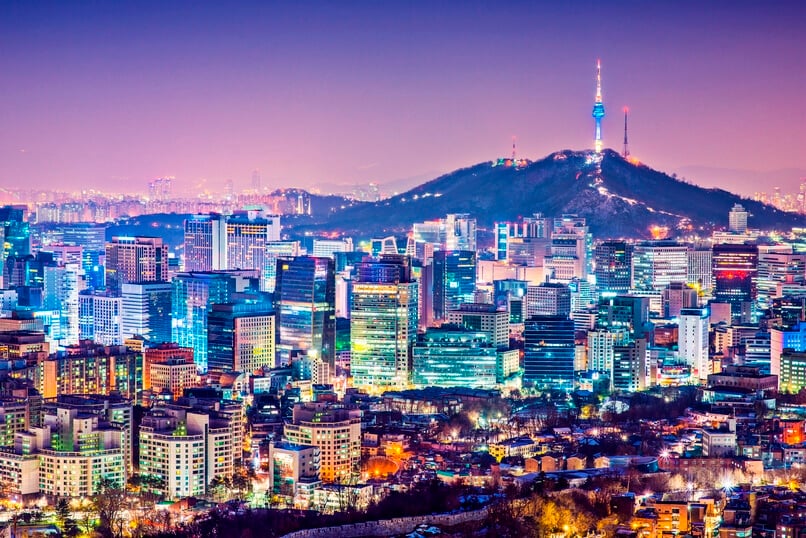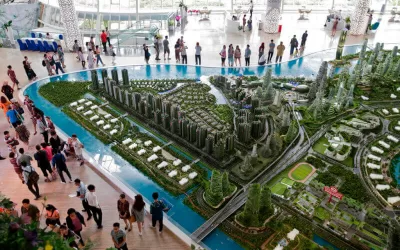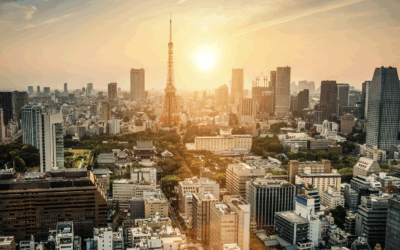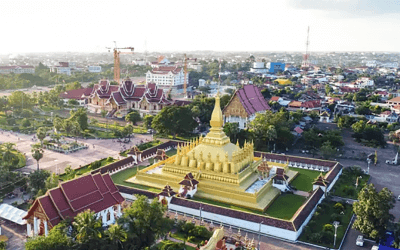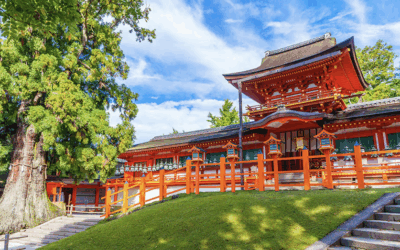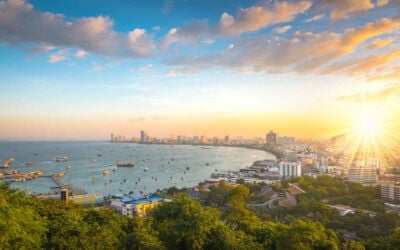Last updated May 22nd, 2025.
Certain countries in Asia are ill-suited to foreign real estate investors who are seeking to diversify their portfolio. Seoul, South Korea is among these cities which are best avoided.
The facts about Korea’s investment potential are attractive on paper. Multinational firms such as Samsung and Hyundai grew enormously successful in a short amount of time, transforming from unknown brands in the early-2000s into global powerhouses today.
Similarly, a robust Korean economy helped it join the ranks of Asia’s most-developed nations. The country’s GDP per capita is expected to surpass Japan’s by the year 2030 in a clear sign of South Korea’s newfound wealth.
Seoul’s real estate prices have become extraordinarily high. It’s true across South Korea in general – that’s the first major problem.
In fact, buying a house in Seoul costs significantly higher than elsewhere in the region. Korean property prices are about double when compared to other developed capital cities in Asia.
South Korea’s declining population, slow economy, and “geopolitical issues” (to phrase the situation with its northern border lightly) will pose immense business challenges going forward.
Below, we’ll describe in detail a few reasons why you might consider holding off on buying a house, condo, or any other type of property in Korea.
Is Korea the Most Expensive Housing Market in Asia?
A main factor worth noting is that South Korea’s cost of land and housing rose drastically over the past several years, doubling in many parts of the nation.
Currently, real estate values here are exorbitant by both global and regional standards. The cost per square meter in central Seoul is now approximately $20,000 – way beyond prices seen in Asia’s comparable developed cities.
Korean real estate is now ranked the third most expensive in the world, placed just after Monaco and Hong Kong.
This is even above wealthier countries including Japan, where prices are around $16,000 per square meter, and Singapore, with an average closer to $14,000 per sqm.

Buying a house in Seoul, or a condo for that matter, will cost you roughly double the equivalent space compared to places like Tokyo.
Now, that doesn’t necessarily mean that Seoul real estate prices won’t keep rising in the future. Many analysts been calling prices in Hong Kong and Singapore “too expensive” for the past decade – they were obviously wrong as values in those cities nearly tripled since then.
The Korean housing market certainly isn’t comparable to Singapore or Hong Kong though, nor does Seoul serve the same purpose as either of those two cities.
Seoul simply doesn’t act as a global financial hub to the same extent that Singapore or Hong Kong do. Meanwhile, South Korea’s demographic and geopolitical risks also aren’t a big issue in these cities.
You should keep in mind that buying an apartment in Seoul, or any type of property here , is by some metrics, risky compared to most other developed cities in Asia.
That’s especially true considering a lack of foreign housing demand in Korea. Wealthy global citizens normally look elsewhere in the region for their investment property.
Korea’s Rapid Demographic Decline
Korea saw its GDP growth rate exceed 4% on average over the past decade – an impressive pace considering it’s a developed economy.
However, what definitely won’t grow in the future is Korea’s population size. The country’s dire demographic situation is quickly getting worse.
Like China and Japan, South Korea will see its population continuously fall in the future. This downward trajectory finally began in 2021, which was the first year in modern history that saw Korea’s population decline.
With 51 million people living in South Korea currently, the country’s population is expected to fall below 40 million by 2060. Demographic decline usually takes years to play out, but it ultimately doesn’t bode well for the nation’s economic future at all.
Less housing demand will almost surely put downward pressure on the Korea real estate market over the next several decades.
At the same time, the median age in South Korea is already at an already high 43.7 years old!
Of course, this number will increase alongside the country’s aging population, putting further stress on labor productivity and social services – both main factors which have contributed to Korea’s economic success thus far.
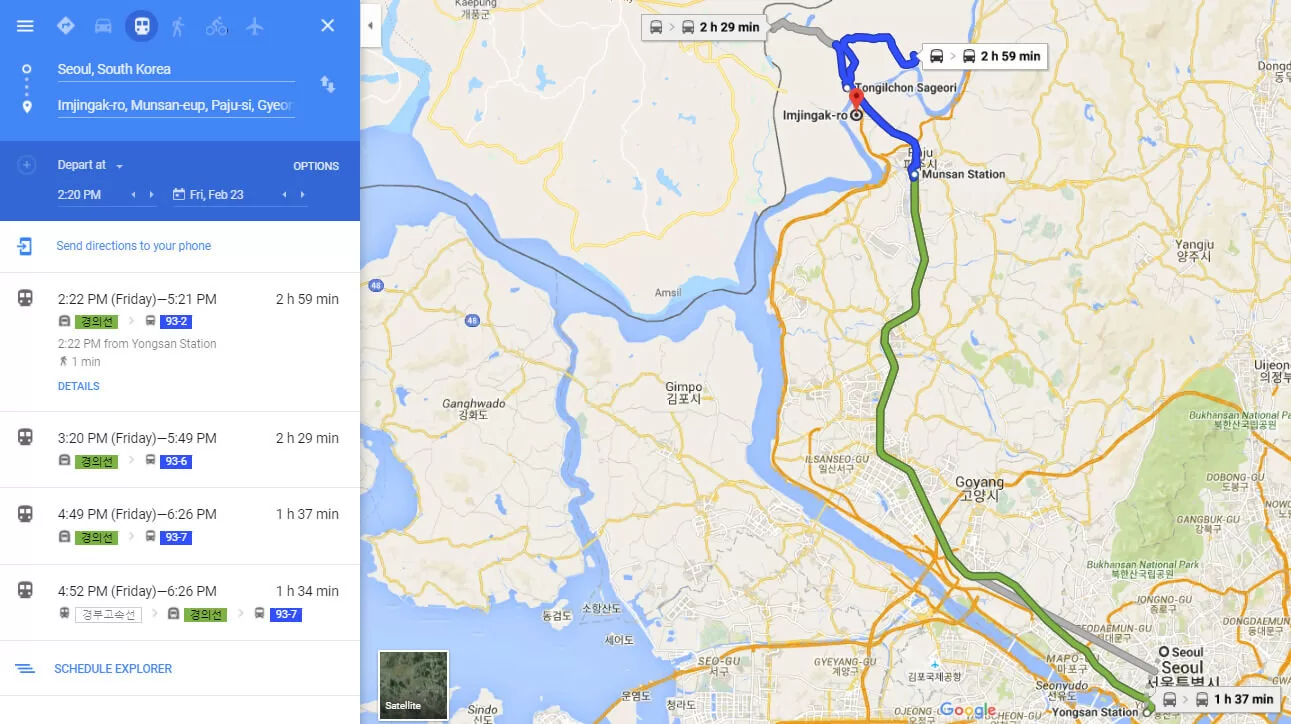
Seoul is only about 200km away from the North Korean border. Naturally, the city’s metro area would be the first target in any conflict. This would be terrible for the South Korean real estate market.
Will Korea’s “Crazy Neighbor” Affect Property Prices in Seoul?
Perhaps the most obvious reason to not invest here, at least looking at the South Korea real estate market from a foreign buyer’s perspective, is the geopolitical risk that comes along with neighboring North Korea.
We aren’t about doom and gloom here at InvestAsian. Indeed, it’s entirely possible that cooler heads will prevail and there won’t be another Korean War anytime this century. Or the next.
Regardless, the possibly of war on the Korean peninsula has a historical precedent and would drastically affect the cost of property in Seoul.
It’s happened before, and Korea’s risk is worth noting in the same way we’d be amiss to not mention Tokyo’s location on a major fault line, or Taiwan’s similar geopolitical problems.
If a second Korean war does break out, real estate prices would steeply decline. There wouldn’t be any guarantee that anyone’s home or apartment building would remain structurally intact, let alone ever return to its previous value.
Future war prospects aren’t necessarily something to necessarily bet on. Nonetheless, North Korea is a wildcard, and over the long-term, the chances of conflict affecting real estate investors aren’t exactly negligible.
Don’t Buy Real Estate in Seoul: You Have Better Options
Housing markets don’t exist in a bubble. As a global investor, you enjoy a greater variety of options. You aren’t forced to choose between locations within a single city, country, or even continent.
Sure, there are some positive aspects to purchasing real estate in Seoul. The Korean Won ranks among the world’s most stable currencies, and foreign land ownership is allowed on a freehold basis as well.
But nearby places in Asia also benefit from these same factors. Singapore and Taiwan, just to offer two examples, are also developed international tech hubs with stable currencies. Like Korea, they also both allow foreign home ownership.
With all other factors being equal, why pick the property market with looming demographic decline and a less-than-remote chance of a major war happening within your lifetime?
We believe there are plentiful investment opportunities across Asia’s real estate markets. Buying a house in Korea isn’t one of them though.
FAQs: Risks of Property in Seoul, South Korea
Is Seoul the Most Expensive Housing Market in Asia?
Singapore is the most expensive real estate market in Asia. However, Seoul ranks very high on the list of most expensive real estate markets in Asia and globally.
The cost per square meter in central Seoul is approximately $20,000, ranking it as the fourth most expensive housing market in the world, after Monaco, Singapore, and Hong Kong.
How Does Geopolitical Risk Impact South Korea's Property Market?
Seoul’s proximity to North Korea, just 200 kilometers from the border, presents significant geopolitical risks.
In the event of conflict, property values in Seoul could plummet, and there’s no guarantee that properties would remain structurally intact or recover their value. This geopolitical uncertainty makes Seoul a risky investment compared to other developed cities in Asia.
What Are the Main Risks of Investing in Seoul’s Real Estate Market?
Seoul’s real estate market faces several challenges, including exorbitant property prices, demographic decline, and geopolitical risks. Housing costs in Seoul are roughly double those in comparable cities like Tokyo.
Additionally, declining population growth and the potential for conflict with North Korea further increase the risks for investors.
Are There Better Alternatives to Investing in Seoul’s Real Estate Market?
Yes, there are better alternatives in Asia for real estate investment. Cities like Singapore and Taipei offer stable currencies, opportunities for foreign homeownership, and serve as major international hubs.
These places also lack the demographic and geopolitical risks that Seoul's property market faces, making them more attractive options for global investors seeking diversification.

